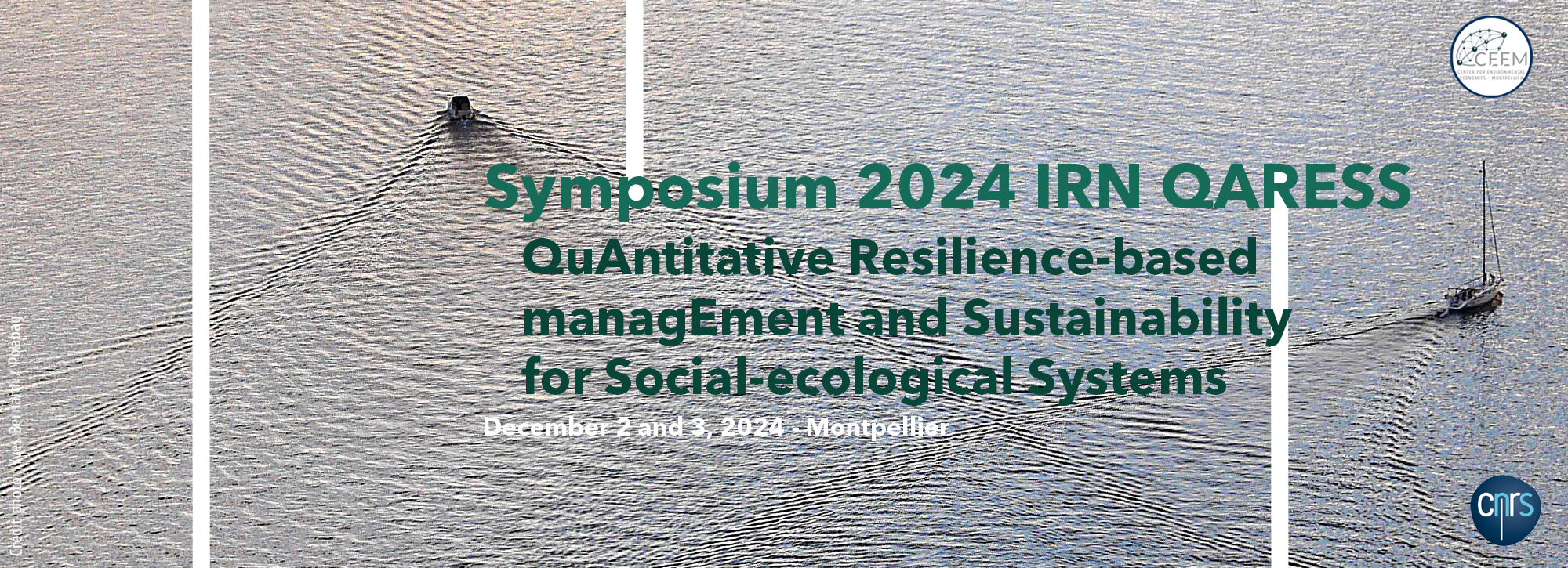Symposium 2024 IRN QARESS (QuAntitative Resilience-based managEment and Sustainability for Social-ecological Systems)

- The next international IRN QARESS Symposium, organised by CEE-M, will be held in Montpellier on December 2 and 3, 2024.
- Venue (Montpellier downtown): Maison des Sciences de l’Homme “Sciences et société Unies pour un autre Développement” (MSHSUD) Site Saint-Charles 2 Rue du Professeur Henri Serre 34080 Montpellier
- Contact : Luc Doyen (CNRS, CEE-M), Katrin Erdlenbruch (INRAE, CEE-M)
- Program>>>
- Registration (Free) >>>
Despite the popularity of the concept, scientists and decision-makers lack a shared understanding of resilience and practical applications in environmental management are rare, in particular for ecosystems and biodiversity. The international research network (IRN) called QARESS will advance resilience-based management of social-ecological systems (SES) relating to forest, farming and fishing activities in terms of quantitative methods, modeling, criteria and scenarios.
For this purpose, IRN QARESS relies an international scientific network of experts in quantitative economics, public policy, environmental and sustainability sciences, decision sciences and modeling across Australia (CSPP), Canada (GERAD), Spain (Un. Santiago), Germany (IDIV), Cameroon (CIAT), Netherlands (CIAT-WUR), and France (CEEM). In terms of applications, QARESS pays particular attention to contrasted case-studies in forestry, agriculture, and fisheries SES across the countries involved in the network. The role of both diversification of economic activities and cooperation between stakeholders in building resilience and sustainability is especially explored. Such resilience and sustainability analysis will give major insights into the reduction of inequalities and vulnerabilities facing global shocks and uncertainties.
- QARESS work is structured via three main tasks, as follows:
- (Task 1): Establish and mature a scientific network worldwide for quantitative resilience-based policy of ecosystems and SES;
- (Task 2): Support the development of models and scenarios for SES resilience-based policy across the case studies;
- (Task 3): Develop international proposals on resilience-based policy for SES.
